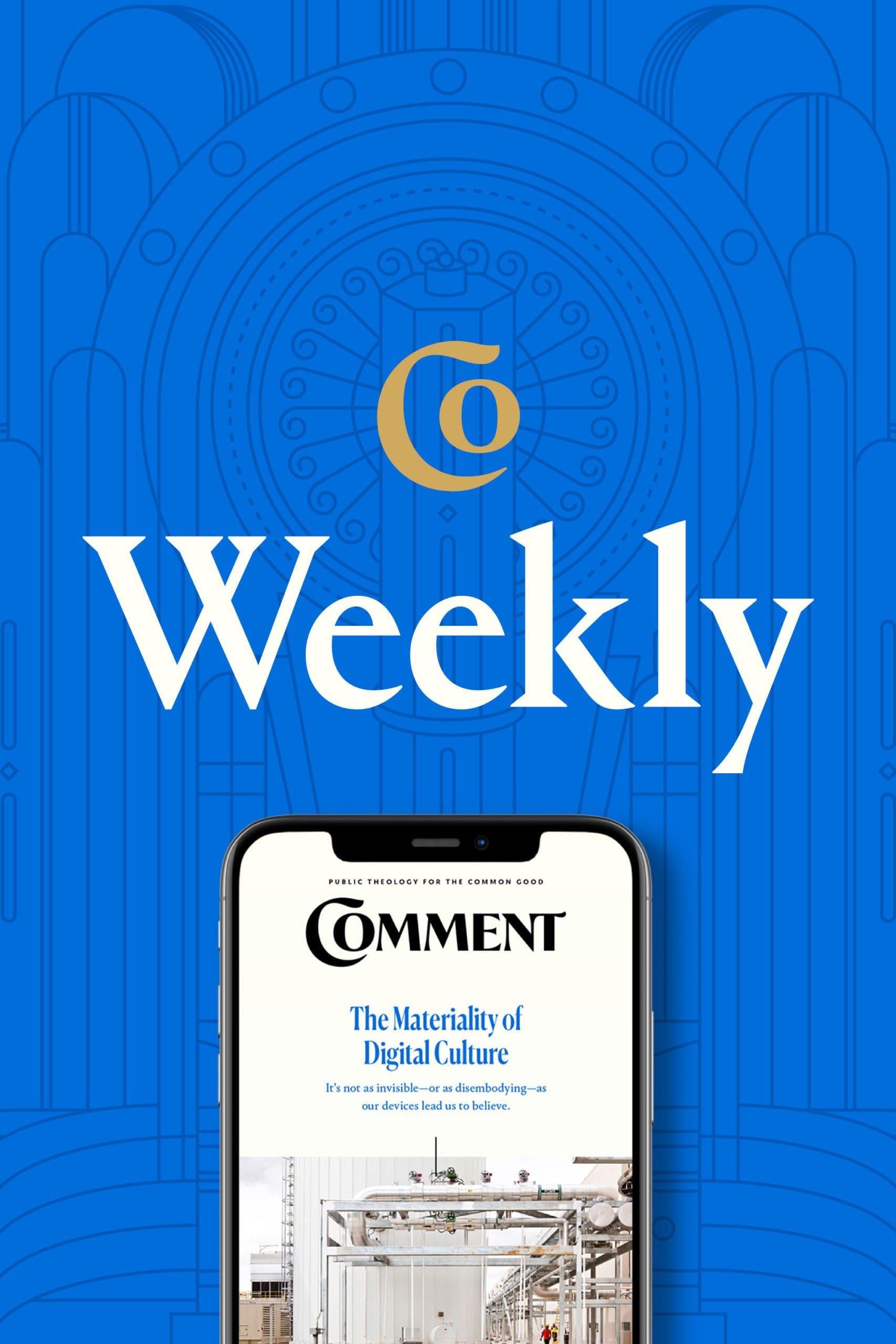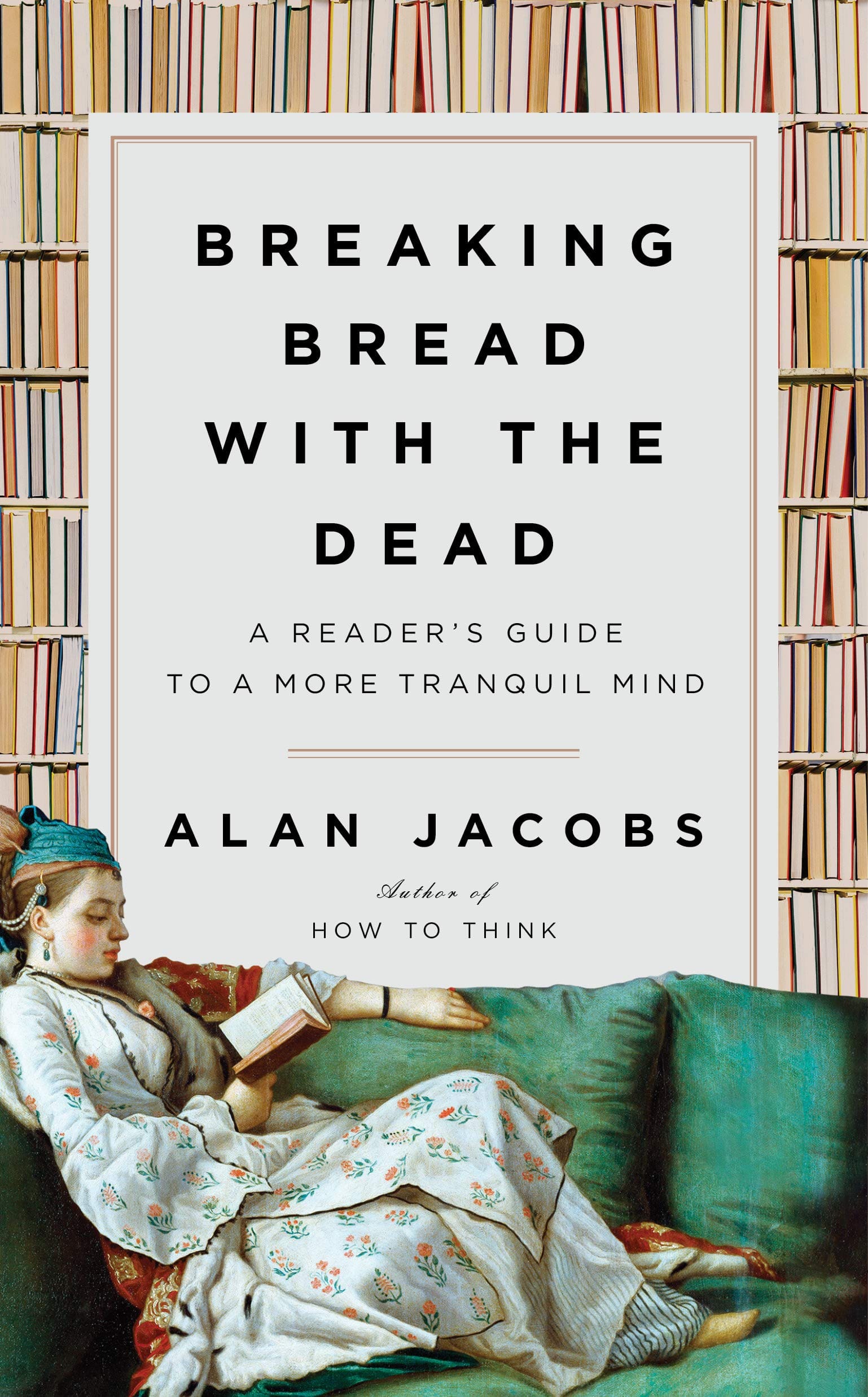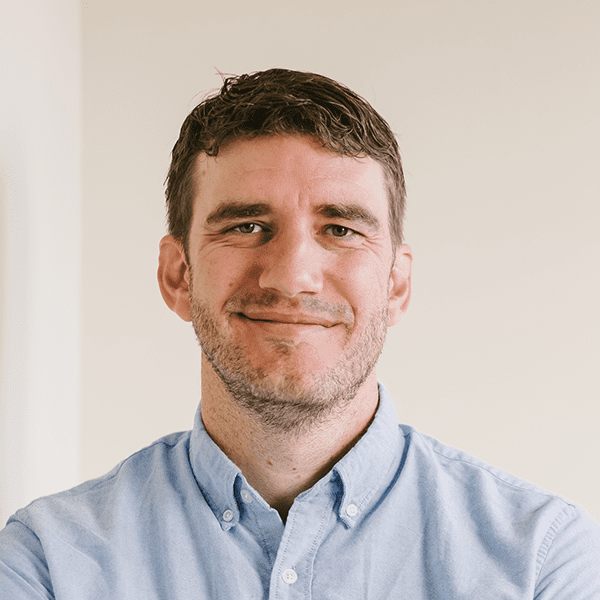Alan Jacobs is an enthusiast. His literary and cultural criticism is peppered with little evaluative asides of personal preference and rank. In his latest book, Breaking Bread with the Dead, for instance, we have not been reading very long when Jacobs tells us he is quoting from “David Ferry’s marvelous translation” of Horace. Jacobs is not content merely to inform us that it is Ferry’s translation, but that it is his marvelous translation. That “marvelous” is vintage Jacobs.
A penchant for superlatives, however, does not make a career. Jacobs has turned his enthusiasm, buttressed by his considerable erudition, into a full-blown hermeneutics, one based on the theological virtue of charity. His early book A Theology of Reading, with the significant subtitle A Hermeneutics of Love, established a long literary preoccupation that has guided everything Jacobs has written since. For while the subjects of his writing vary widely, their common object, it seems to me, has been a freedom to follow his nose, to read openly and generously, and to be moved and shaped by what he reads. And it is a freedom he would like to extend to his readers and for them to embrace.
Breaking Bread with the Dead continues this preoccupation. For several years Jacobs has been developing these ideas in a loose trilogy, beginning with The Pleasures of Reading in an Age of Distraction, followed by How to Think, and now brought to a close with the book at hand. This book is not a blanket apologia for old books but rather is about how to disagree more productively with the words and the mindsets of the past, as How to Think was about how to disagree more productively with others in the present.
Early in the book Jacobs introduces two concepts that frame the rest of his argument. These are personal density and temporal bandwidth, and they are drawn from Thomas Pynchon’s novel Gravity’s Rainbow. Here is Pynchon, as quoted by Jacobs: “‘Temporal bandwidth’ is the width of your present, your now. . . . The more you dwell in the past and in the future, the thicker your bandwidth, the more solid your persona. But the narrower your sense of Now, the more tenuous you are. It may get to where you’re having trouble remembering what you were doing five minutes ago.”
Because the information we take in is generally restricted to the ever new, the ever current, our temporal bandwidth, Jacobs argues, is paper thin—“narrowed to this instant.” As a result our personal density—which “is directly proportional to temporal bandwidth”—is positively ethereal. (If this map is new for Jacobs’s readers, the territory is not. He has been thinking hard for years about the effects of technology on our daily life and on our life together, as he shows with particular sensitivity in his essays “Attending to Technology: Theses for Disputation” in The New Atlantis and “Habits of Mind in an Age of Distraction” here in Comment.)
Here is the argument Jacobs advances on the basis of these two concepts.
Because we are constantly overloaded with information, we “sense that we are always receiving more sheer data than we know how to evaluate.” This information overload gives rise to “a feeling of social acceleration—the perception that the world is not only changing but changing faster and faster.” Information overload and social acceleration force us into informational triage. (The early chapters have a lot of these densely packed phrases, but Jacobs is very good at defining his terms.) This state of affairs explains not only why the past, according to our society, must be left behind but also why we feel like “it actually defiles us—its presence makes us unclean.” We practice a sort of negative selection, looking for ways to dismiss information in order to simplify our judgments. Hence we understandably, if unintentionally, reduce our temporal bandwidth and therefore lack personal density.
We are in need of a “serious encounter with the past,” because the past is different from us and bigger than we are.
To overcome this situation, Jacobs offers a self-help regimen: We are in need of a “serious encounter with the past,” because the past is different from us and bigger than we are. Living people are difficult to get along with; contemporary events arouse our passions. But the dead are free of these attachments. They offer a way to non-threateningly engage with difference.
Jacobs is eager, however, to pre-empt the criticism that he is romanticizing the past or indulging in nostalgia. The wickedness of the past, he says, was and is truly wicked, and we should not revisit it simply in order to second-guess our values or convictions. Rather, because we dismiss everything about the past, we consign ourselves to ignorance of both its strengths and its weaknesses. We therefore incapacitate ourselves from discovering the value of a true encounter with the dead. Jacobs repeatedly comes back to this point—“modern consciousness has taken certain forms that don’t just ignore” the gifts of the past “but disable us from understanding them.” This particular way of losing the past is self-perpetuating because it is invisible to us.
There are nevertheless counterproductive ways of retrieving the past. For instance, we are prone to collapse the difference between ages past and our own age, in which case the difference between us and the dead is erased, and they simply become tools for affirming to us the values we already hold. But “reading old books,” Jacobs says, “is an education in reckoning with otherness; its hope is to make the other not identical with me but rather, in a sense, my neighbor.”
Encountering the dead, in Jacobs’s telling, is most productive when it is born out of an act of love—not the feeling of longing but the virtue of charity. In these encounters we inevitably find ourselves disagreeing, but as with a friend. You might find yourself deeply at odds with the work of an author from the past, but you might at the same time—even in spite of yourself—find yourself catching your breath at its beauty or astonished by an insight you never would have seen otherwise. This is “a moment when something deeply human and beautiful emerges” from a text that your ideology dictates that you loathe. Beauty and dissent; connection and disagreement. It is Jacobs’s plea that the experience of the one not cancel out the truth of the other. That “double recognition” can engender a struggle that is more productive and beneficial than either ignorance or denunciation. We must wrestle with the angel of the past until it yields a blessing.
Encountering the dead, in Jacobs’s telling, is most productive when it is born out of an act of love—not the feeling of longing but the virtue of charity.
Although I hope I have fairly summarized the entirety of Jacobs’s argument, to this point I have taken the reader only through chapter 5. There are still four more chapters to go. Jacobs spends the remainder of the book not on developing his argument but on refining it through a series of extended meditations on old books. I was initially frustrated at this. The argument seemed to stall out two-thirds of the way through. But when I revisited these later chapters I realized it was a deft move. Jacobs enacts the sort of encounters with the past for which he has been advocating. More than that, many of the extended vignettes feature writers who are themselves wrestling with the past, resulting in a multilayered demonstratio of his argument—the author encountering the dead encountering the dead, each negotiation wrapped up in the previous one. There are many such encounters in the final chapters: with Frederick Douglass, Dorothy Osborne, Ursula K. Le Guin, John Milton, Henrik Ibsen, Seamus Heaney. All of them have in common a wrestling with what Jacobs calls “complications of perception,” those moments of double recognition when we find ourselves face-to-face with the complexity of the past, unable to simplify it according to our preferred narrative: “These complications of perception are essential to reading the past—they are the chief means, I think, by which increasing our temporal bandwidth increases our personal density.”
Although left-right, conservative-progressive dichotomies play little explicit role in his argument, Jacobs is constantly navigating them, and at the same time subverting them, undoing them, exploding them. Often enough he shows that they are merely two sides of the same coin. For example, Churchill and Chesterton make several appearances in this book. Say a conservative-minded reader picks it up in a bookstore, flips through the pages, and espies these names flitting across the pages. He is likely to lick his lips in anticipation at the thought of Jacobs reproducing their juicy bons mots, their witticisms, their elegant takedowns of modern culture served up as aperitifs to the entrée of what will surely be an elaborate narrative of cultural decline. But Jacobs does nothing of the sort. Though appreciative of these two men, he actually brings them up in order to criticize them for underplaying the difference between the present and the past. Likewise, in a discussion of The Taming of the Shrew, in which Jacobs reassures skeptical readers that they need not give up their critiques of the play’s rank patriarchy (he even gives C.S. Lewis a light slap on the wrist for his dismissiveness toward those who are scandalized by it), the progressive-minded reader is likely to nod very earnestly. And yet it is the modern liberal theatre companies that undermine Shakespeare’s meaning through ironic or countervailing stage direction that come in for criticism. In both cases what troubles Jacobs is the evasion of the challenge that the past presents to us. Any approach to the past that defangs it—whether due to supercilious repugnance on the left or an arcadian narrative of decline on the right, or anything else anywhere in between—has failed to adequately reckon with it.
A couple of criticisms.
First: Jacobs says that, given the firehose of information we are exposed to every day, it is understandable that we would look for ways to practice negative selection. It is unclear to me, however—on the basis of the argument in this book at least—how this pragmatic sense of triage converts to moral defilement. That negative selection and informational triage contribute to our society’s forgetfulness of the past is evident. But how they lead to a sense of repugnance, abhorrence, or active revulsion is not. Jacobs cites Charles Taylor, who argues that one of the distinctive aspects of modernity is that we sense we have “overcome” the past with its superstitions and myths and magic. If we have overcome it, we are invested in its staying overcome—and we might get a little testy when it doesn’t. That accounts for the sense of superiority, and maybe defensiveness. But defilement?
In his 2017 essay “Wokeness and Myth on Campus,” Jacobs himself develops a more satisfactory account of why “wrong” ideas defile us. There he argues that students on campus today have by and large not been habituated in a tradition of long moral reflection, such as that provided by the Christian account of good and evil and sin. These students, therefore, are working with an implicit mythological framework—one governed by “elementary experiences and their primary symbols” of defilement and pollution and cleansing. Pollutants can’t be argued with; they must be expelled.
It is easy to see how this argument applies to Breaking Bread with the Dead. But although Jacobs points to this notion of defilement in an endnote, the 2017 essay plays little role in this argument. Even Taylor’s sense of overcoming the past is left behind for the more loosely sociological explanations of negative selection and information overload, which unfortunately leaves the disconnect between the pragmatic and the moral in place. If we don’t know the moral causes of our hatred of the past, how are we to understand the moral consequences of it?
If we don’t know the moral causes of our hatred of the past, how are we to understand the moral consequences of it?
This deficiency might be attributable to the fact that Jacobs’s book is very short, and he does not want to saddle his readers with long passages on intellectual history or genealogies of modernity. (And for that I am grateful—I love short books.) Or perhaps he means for his pragmatic explanation to be a rhetorical shorthand for the larger argument he has made elsewhere. Even if that was his intent, however, I did not receive the impression.
The second is not so much a criticism as something to bear in mind when reading this book and books like it. Jacobs says in chapter 1 that he is writing for the 2 percent of the population that will even be willing (or able) to hear him out, and he’s not all that optimistic that he will gain much ground among them. So while Jacobs’s appeal to things like double recognition and complications of perception is a needed word for the rarefied remnant of the 2 percent, I wonder about the masses. What about those in thrall to presentism? What about the simple, the uneducated—in short, what about the other 98 percent? In particular, I’m interested in the segment of the population we are educating to be the kind of people who will read Jacobs’s wise book and benefit from it. To be fair, Jacobs says that he is writing not as a teacher, but “as a reader to other readers, a citizen to other citizens.” But I worry that those sympathetic to Jacobs will ignore his parameters, that they will construe the book as a fundamental approach to education about the past rather than as one that offers the 2 percent a better way.
In which case it must be borne in mind that before we can complicate a narrative, we must have already been educated into it. Which is what troubles me about Jacobs’s invocation of the educational reformer John Dewey, who is frequently assumed to have moved education toward a presentist outlook. Dewey, Jacobs admits, “did more than anyone else to shift the energies of educators from the model that Churchill and Chesterton loved to the one most of us today have experienced.” Nevertheless, he says approvingly, Dewey’s understanding of education involves “taking what we have inherited and, rather than discarding it, reorganizing and reconstructing it—a task that can be performed intelligently only if we sift the past for its wisdom and its wickedness, its perception and its foolishness.” Again, sifting the past for its wisdom and its wickedness is an excellent habit of mind for the 2 percent. But Dewey has shaped education for entire generations of children. This sifting presumes the part of the arbiter—of the teacher, not the student.
It is an inescapable part of the human condition that we find ourselves drawn to simple stories about the past. But it is not progress to replace those stories with ones generated to dismantle the past before its gifts can be received.
Third-graders are not capable of double recognition or complications of perception in the way Jacobs (or Dewey) advocates. The way to discernment runs through a prior, more fundamental posture of acceptance. A posture much closer, I believe, to Churchill and Chesterton’s reverence than to Dewey’s reorganizing and reconstructing. At the least it must be acknowledged that one must receive a tradition before one can begin to critically interact with it. It is an inescapable part of the human condition that we find ourselves drawn to simple stories about the past. But it is not progress to replace those stories with ones generated to dismantle the past before its gifts can be received. We should be able to embrace this initial, childlike acceptance while at the same time admitting that the darker angels of our nature are prone to accept oversimplified stories about the past that fit our preferred narrative. Which is why books like Jacobs’s will always be useful and welcome. But these books must always remain a necessary corrective to our inherent weaknesses, not our fundamental starting point.
These are quibbles. Buy Jacobs’s book. Read it. Imitate it. It is wise and learned. Jacobs is a sensitive and magnanimous reader of books both old and new, and he has loads of common sense. One of the old books he returns to several times is the Odyssey, one of the very oldest of old books. Specifically he speaks of Odysseus’s journey to Hades, where the dead “remain silent until their tongues are touched with the blood of the living.” Only then can they speak. It is a pungent metaphor. “What the dead we encounter in books demand,” he says, “is only the blood of our attention.” The dead cannot speak unless we summon them, unless we give them the blood of our attention—which, he points out, “we are free to withhold.”
Let them speak. We have much to learn.





